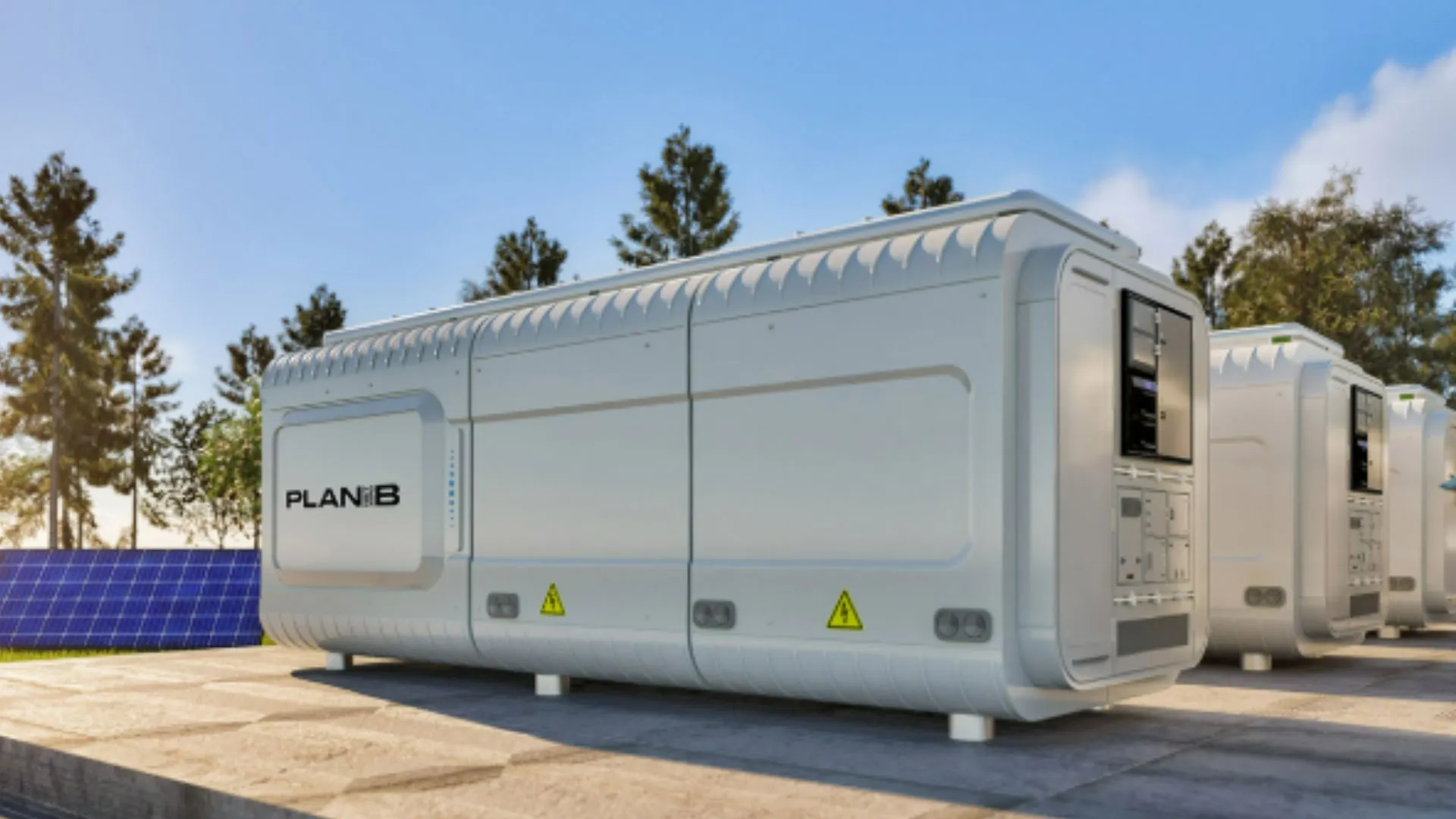
A Swiss green technology startup is pitching a dual approach to stabilizing European power grids by combining battery storage with hydrogen systems.
Plan-B Net Zero, founded in 2023, unveiled its concept at the D-A-CH Hydrogen Symposium in Wiener Neustadt, Austria, this week. The design calls for battery energy storage systems to handle short-term fluctuations with millisecond response, while hydrogen reserves provide long-duration, seasonal backup through fuel cells and turbines.
The company says the model could suit the interconnected grids of Germany, Austria, and Switzerland (DACH). “The model integrates Battery Energy Storage Systems (BESS), green hydrogen, and artificial intelligence (AI) into a flexible, intelligent energy ecosystem designed to stabilize power grids and strengthen supply security,” said the firm in a blog post.
Last week, South Korea officially began construction on what will be the world’s largest hydrogen fuel cell power plant, designed to supply clean electricity for about 270,000 households each year.
Partnering batteries and hydrogen
Power grids in DACH are under growing pressure as renewable feed-in becomes more volatile, grid expansion lags, and extreme weather events increase. Traditional planning approaches are no longer enough to maintain stability. Instead, energy experts are calling for smarter, decentralized solutions that can autonomously react to fluctuations, reports PV Magazine.
Offering a solution, the Swiss startup introduced an integrated model that combines BESS with hydrogen technologies. In this approach, BESS handles rapid fluctuations within milliseconds, absorbing short-term surpluses or deficits. Hydrogen, produced from renewables, acts as a seasonal storage medium, capable of holding energy for months before being reconverted through fuel cells or turbines.
Together, these technologies create operational synergies, enhancing efficiency, economic viability, and system resilience. The concept is further strengthened by AI-driven forecasting and control algorithms, which coordinate generation, storage, and demand in real time. According to the firm, it positions batteries and hydrogen not as rivals, but as complementary pillars of a stable and future-ready energy system, reports Fuel Cell Works.
“Together, these technologies form the bridge to a robust, fully renewable energy system, providing additional flexibility and control parameters when combined,” said Tjark Connor Hennings-Huep, battery systems expert at Plan-B Net Zero, in a blog post.
Regional energy hubs
Plan-B is advancing the concept of regional energy hubs designed to integrate photovoltaic generation, battery storage, and electrolyzers into a coordinated system. These hubs convert surplus renewable electricity into hydrogen, which can be stored locally and used when needed, ensuring flexibility and long-term energy security.
The company is currently building a project pipeline of around 1.3 GWh of stand-alone BESS. Future plans include linking these with hydrogen technologies to expand capabilities from short-term balancing to seasonal storage. This combination would allow batteries to cover rapid fluctuations, while hydrogen ensures sustained backup over extended periods.
According to the firm, central to this approach is an AI-based energy management platform. Using predictive models for weather conditions, market prices, and grid demand, the system optimizes when to charge, discharge, or run electrolysis. This enables higher energy yields, cost savings, and more efficient use of resources.